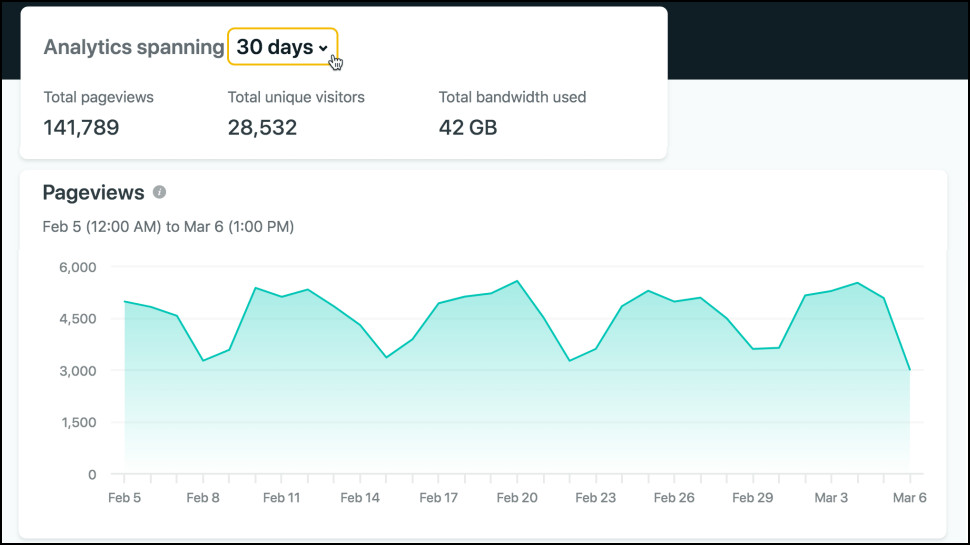What are the 3 types of CRM?
Three fundamental types of CRM are available to businesses

Sign up for breaking news, reviews, opinion, top tech deals, and more.
You are now subscribed
Your newsletter sign-up was successful
There are many different platforms that can justify the title of best CRM software on the market, but there are substantial differences between them. For a start, there are differences in terms of departmental focus, with some platforms aimed at marketing and others specifically directed at sales teams. There are also differences with regard to industry, with the best insurance CRMs likely to differ from the most suitable for real estate firms.
There are also variations in terms of how CRMs are accessed, with cloud CRM software delivered via an internet connection and on-premise solutions stored locally. There are open-source CRMs and a range of other excellent free CRM software to consider too.
However, it is less often noted that there are three fundamentally different types of CRM platforms: operational, analytical, and collaborative. These different solutions ensure that the vast breadth of different business (and customer) needs can be met by CRM platforms. In an increasingly competitive marketplace, vendors must ensure that they can support business goals through their CRM solutions wherever they reside.
Reader Offer: Save 18% on Monday.com annual memberships
Monday.com is an easy-to-use and customizable work management platform, enabling teams of all sizes to plan, manage and centralize work. Get started now and boost your team's communication and productivity.
Preferred partner (What does this mean?)
What are the 3 types of CRM?
Operational CRM
An operational CRM aims to streamline a company’s processes - essentially to make things easier for sales, marketing and customer service teams. It should improve efficiency and productivity by supporting lead generation and creating the digital infrastructure to ensure customers enjoy a positive experience.
Many of the most common features of an operational CRM employ automation in some form. This includes both marketing and sales automation so both departments should enjoy a release from burdensome manual tasks and an uptick in conversion.
On the marketing side, you might see operational CRMs employ email marketing functionality, as well as live chats, website monitoring, and lead management. For sales teams, operational CRMs are likely to incorporate functionality like contact management, quote-to-order management, and sales forecasting. There may also be some overlap between the features used by both sales and marketing teams, with lead management, in particular, likely to straddle both. In fact, it’s important that operational CRMs don’t view the two teams as particularly distinct as companies won’t want operational silos to emerge.
Service automation is another important pillar for operational CRMs. This allows businesses to improve customer loyalty, boosting retention by improving service quality and strengthening relationships. Issue management is normally a key feature of service automation tools, with monitoring of service quality key to ensuring that businesses continue to deliver. KPIs can also help here, such as time to resolution.Automation can also ensure that acknowledgement emails are sent to customers automatically or urgent cases are escalated.
Sign up to the TechRadar Pro newsletter to get all the top news, opinion, features and guidance your business needs to succeed!
Of course, you’ll still notice considerable variation within different tools classed as operational CRMs, but there are some common features to many. These include people management, which will help firms ensure that they match people to purpose based on their skillsets, and business reporting so you have a clearer view of your position within the broader market. But whatever particular features are included in your operational CRM, you are likely to find a solution that can improve your marketing processes, enhance internal communication, and ultimately increase revenue. If that isn’t a good outcome from using an operational CRM, then I don’t know what is.
Analytical CRM

There is a lot of talk about data and analytics in business circles, but did you know there’s an entire subsection of CRM for businesses to get their analytical fix? Analytical CRMs help businesses to collect data, before turning it into the kinds of insights that could fuel business growth. It means that your sales, marketing or service teams can determining how to better serve customers - not based on a hunch, but as a result of verifiable data.
Analytical CRMs collate data points from a variety of sources - customer behavior, sales, email response rates, and more - to build a holistic model of the customer - a 360-degree profile. Using this information, businesses can add personalization to their products and services - something that many customers are crying out for. This means that no matter where customers are along the sales pipeline, employees have instant access to relevant data.
These types of software solutions can help firms to improve decision making, better understand the effectiveness of marketing campaigns, and increase sales figures. Some of the most common features to analytical CRMs include analytical processing, where large amounts of data are organized - this can even lead to predictive analytics can tell business prospective future situations. Data collection - often relying on cloud storage - and data mining are additional features that also form part of analytical CRMs.
Analytical CRMs supply businesses with knowledge of what motivates prospects to become customers. Combining demographic details of prospects with a database containing their preferences and marketing experiences, firms can gain a clear picture of what it is that motivates individuals to become customers. Further analytical processing can then be used to create appealing products that unlock new sales opportunities for existing and prospective costumes.
Analytical CRMs include Salesforce, with its Einstein AI functionality a particular good example. This AI tool begins gathering data on your sales activity and deals as soon as it’s activated. This is a huge help with lead scoring - again offering a predictive element. Other analytical CRMs include HubSpot, which offers reporting and analytics functionality - even in its free plan. Other great analytical CRMs include Zoho, Insightly, and Bitrix24.
Collaborative CRM
Given that the closure of many deals rely on the hard work of multiple team members, it is unlikely to come as a surprise that the third type of CRM solution is a collaborative CRM. These tools are designed to remove workplace silos, fostering improved communication both internally and externally by centralizing data and streamlining workflows throughout the entire company.
The rise of hybrid work has meant that collaboration is not longer limited to employees working in the same building either. Collaborative CRMs, particularly if they are mobile-enabled, can allow employees to work together on a particular deal, sharing customer information and tips securely. By streamlining cooperation, collaborative CRMs help companies achieve their business goals faster by leverage the knowledge and skills or their entire organization.
For a collaborative CRM, two of the most important features are contact management and channel management. Regarding the former, this enables sales teams to track customer and client details - including every interaction. Channel management, meanwhile, reflects the fact that the best way of reaching customers can vary depending on the particular campaign you’re running. Email may be the best channel to reach them on, for instance, or perhaps WhatsApp is better fit.
It can be difficult to predict which channel customers will use to engage with a company so collaborative CRMs often utilize channel management tools to provide as many self-service channels as possible, thereby preventing your customer service team from becoming swamped with customer enquiries across a fragmented contact ecosystem. This also means that whichever employee is tasked with handing a customer account, they can access a list of previous interactions easily - regardless of what channel they took place over
Sometimes collaborative CRMs also include a component known as interaction management. This is similar to contact management in the sense that it provide structure and clarity to customer engagements. This can help reduce customer service costs because your CRM collects, organizes and shares customer data across multiple teams. There is no need to employ a customer service personnel to carry this out manually.
Other benefits of collaborative CRMs include the improvement of work processes. By centralizing all customer interaction data in a single location, your company can acquire more intelligent insights. Your team members will found it easier to view individual case files in real-time. Your customer will then see an improvement in the level of service they receive. This will improve retention by supporting your teams to build a truly holistic profile of the consumer and their expectations.
Some of the best collaborative CRMs include Microsoft Dynamics 365, which boasts a truly collaborative environment thanks to its ability to integrate with a number of other Microsoft tools. It also combines five different CRM-alligned modules: sales, customer service, field service, project service automation, and marketing. SugarCRM is another excellent collaborative CRM. Communication really takes center stage with this CRM, which allows your employees to design and implement advanced workflows and offers real-time push notifications to ensure you always remain on task.
Which type of CRM do you need?
Ultimately, deciding on whether you need an operational, analytical or collaborative CRM depends on your business goals. Fortunately, many CRMs encompass features that could fall under more than one of the aforementioned categories. It really depends on where your priorities lies.
Do you have an excess of data and no clue how to use it? Then, an analytical CRM is probably what you need. Are your workflows inefficient meaning you lose customers to fast-moving competitors? Then perhaps an operational CRM is for you. Or do your different teams fail to identify deals that they could work together on? Then a collaborative CRM is probably right for you. Make use of a free trial and get direct experience of the tools you need.
Barclay has been writing about technology for a decade, starting out as a freelancer with ITProPortal covering everything from London’s start-up scene to comparisons of the best cloud storage services. After that, he spent some time as the managing editor of an online outlet focusing on cloud computing, furthering his interest in virtualization, Big Data, and the Internet of Things.

